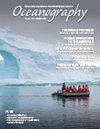Changing the Culture of Coastal, Ocean, and Marine Sciences: Strategies for Individual and Collective Actions
IF 2.8
4区 地球科学
Q1 OCEANOGRAPHY
引用次数: 6
Abstract
INTRODUCTION Over the past few years, abundant news articles reporting violence against communities of color in America have spurred members of the geoscience community to pay much-needed attention to promoting belonging, accessibility, justice, equity, diversity, and inclusion in our disciplines, including in the coastal, ocean, and marine sciences (e.g., see antiracism initiatives No Time for Silence, Call for a Robust Anti-Racism Plan for The Geosciences, Unlearning Racism in Geoscience, and Black in Marine Science, among others). For years, many wellintentioned programs have invested time and resources to attract students from historically excluded groups into the coastal, ocean, and marine (COM) science workforce, with limited retention success. It has become increasingly clear that recruitment is not enough. What is urgently needed is a change in the culture that includes systematic eradication of existing paradigms and models that have perpetuated racism, inequities, and injustices in higher education. Bold new paradigms and models are needed to create working and learning climates where all can thrive, both personally and professionally. To truly take an all-hands-on-deck approach to solving the enormous environmental problems humanity now faces, the COM science enterprise needs to critically examine and evaluate the effectiveness of its traditional working and learning practices. Why would anyone want to stay in a discipline that is disrespectful, toxic, and unwelcoming? How do we expect to retain people if they don’t see others with similar backgrounds and experiences in positions of leadership and power? How can people pursue science in environments that perpetuate harassment, discrimination, and misconduct? We will all benefit by creating a scientific and professional culture that offers its workforce exciting, financially viable, REGULAR ISSUE FEATURE改变海岸、海洋和海洋科学的文化:个人和集体行动的策略
在过去的几年里,大量的新闻报道了美国针对有色人种社区的暴力行为,这促使地球科学社区的成员们迫切需要关注在我们的学科中促进归属感、可及性、正义、公平、多样性和包容性,包括在沿海、海洋和海洋科学中(例如,参见反种族主义倡议“没有时间沉默”、呼吁为地球科学制定强有力的反种族主义计划、忘记地球科学中的种族主义、和布莱克在海洋科学等)。多年来,许多善意的项目投入了时间和资源,以吸引历史上被排斥的群体的学生进入沿海、海洋和海洋(COM)科学队伍,但收效甚微。越来越明显的是,光靠招聘是不够的。我们迫切需要的是改变文化,包括系统地根除现有的范式和模式,这些范式和模式使高等教育中的种族主义、不平等和不公正得以延续。需要大胆的新范例和模式来创造工作和学习环境,使所有人都能在个人和职业上茁壮成长。为了真正采取全体参与的方法来解决人类目前面临的巨大环境问题,COM科学企业需要严格检查和评估其传统工作和学习实践的有效性。为什么会有人想要留在一个不尊重、有害和不受欢迎的学科里呢?如果员工在领导岗位和权力岗位上看不到有类似背景和经验的人,我们又怎么能留住他们呢?人们如何在骚扰、歧视和不当行为持续存在的环境中追求科学?我们将通过创造一种科学和专业的文化,为其员工提供令人兴奋的,经济上可行的,定期发行的特色
本文章由计算机程序翻译,如有差异,请以英文原文为准。
求助全文
约1分钟内获得全文
求助全文
来源期刊

Oceanography
地学-海洋学
CiteScore
6.10
自引率
3.60%
发文量
39
审稿时长
6-12 weeks
期刊介绍:
First published in July 1988, Oceanography is the official magazine of The Oceanography Society. It contains peer-reviewed articles that chronicle all aspects of ocean science and its applications. In addition, Oceanography solicits and publishes news and information, meeting reports, hands-on laboratory exercises, career profiles, book reviews, and shorter, editor-reviewed articles that address public policy and education and how they are affected by science and technology. We encourage submission of short papers to the Breaking Waves section that describe novel approaches to multidisciplinary problems in ocean science.
 求助内容:
求助内容: 应助结果提醒方式:
应助结果提醒方式:


